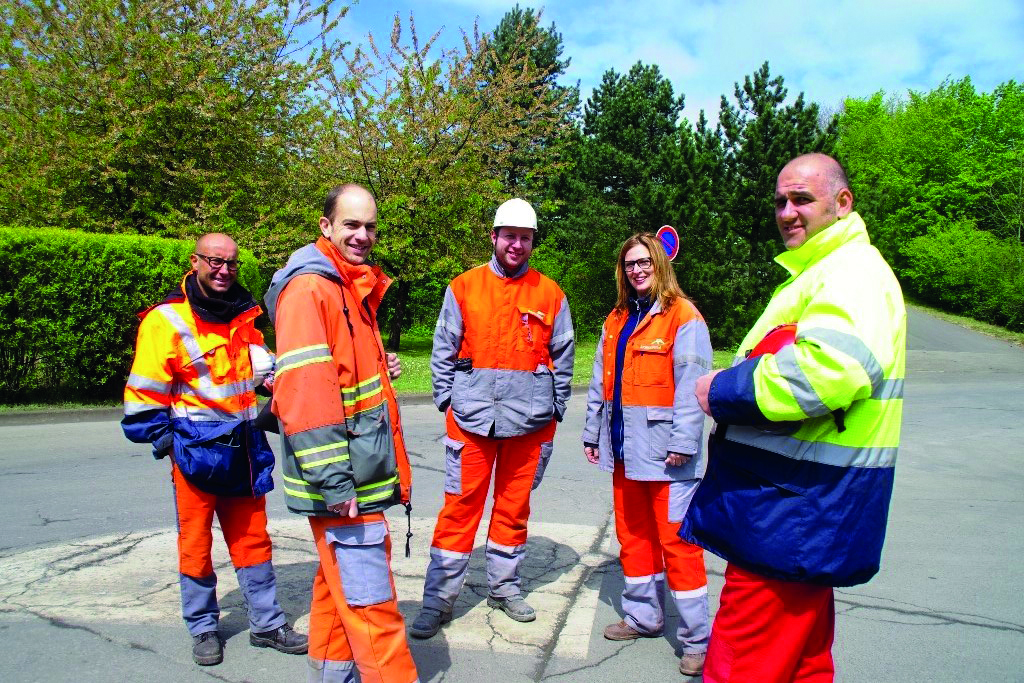Meet Jana Messer, Head of Steelplant

Woman Portrait
Jana Messer runs the steelplant of the Differdange steelworks. The 49 year-old German-Luxembourgish ArcelorMittal employee manages a team of 230 spread across the production, maintenance and engineering sectors. Her mission consists in carrying out the production of one million tonnes of steel a year while overseeing the production costs as well as ensuring safety and preventing work accidents. Meet a woman leader in a men’s world.
Chemist by trade specialised in the nuclear field, Jana studied in East Germany. At university, her class was equally composed of men and women. “In the DDR every woman worked, no one stayed at home, so the gender distribution was very homogeneous, even in the steel industry”, she remembers. When arriving in Luxembourg, it was a big surprise to find out that she was the only woman in her team.
To date, there are only 3 women on her team attached to the production department. How to explain this numerical male superiority? According to Jana, the problem is twofold. On the supply side, recruiters do not hire enough women believing that they do not have the ability to withstand the difficult conditions. This is why they often seek to direct them towards purchasing, finance or desk positions, but hardly towards positions that are directly linked to the plant’s production. Furthermore, as for the candidates, women themselves come to doubt their own skills and censor themselves: “When I got the head of production position, I thought that I was not up to it at the beginning. I thus asked all levels of hierarchy to complete a questionnaire to get feedback on my work. It was a true gift and relief when the positive returns made me realise my own legitimacy.”

Another less showcased reason is the unequal distribution of household chores. Shift schedules are poorly adjusted to a work/life balance. In many households, it is still the woman that takes care of the children, the cooking, the cleaning. It is ironic but in an authentic manner that Jana claims: “My engineer colleagues get home very late in the evening but I cannot afford it because there is no well-ironed shirt waiting for me. Luckily, this is not the case for every family. I have a colleague who holds a lottery with her husband to decide who is doing what household chores and their system works quite well.” It is interesting to notice that even if there is a slight evolution on the workplace, there is still quite a room for improvement in the domestic sphere.
Jana’s career path has known many setbacks. In other plants, the superiors have tried many times to direct her towards quality positions but never production ones because “she is a woman”. But she never let herself be discouraged. In order to confront the stereotypes, Jana used masculine codes to obtain respect in the beginning of her career, but without success. “Despite all my efforts, I was not a man, so why imitating them? I had to find my own style, be myself”. It is rather in her way to communicate that Jana had to change some details, adapting her messages.
Throughout her career, Jana noticed an evolution in the way she is perceived: “My authority is now very well perceived, there are no offensive remarks anymore and I really appreciate working with men. However, there still aren’t enough women, I try to develop recruitments because diversity brings an important advantage to any company. Opposing points of view allow to find better solutions. Gender equality is nevertheless only one aspect of diversity, other aspects are as important!”
Jana has one piece of advice for all the women climbing up the career ladder, “Every woman should try to build a network, find a mentor, if possible, highly ranked in the hierarchy that could give support like I have been supported for this position in Differdange. I do not mean having a women’s delegate, but a unique tutor that every woman would try to find to help build her own career. Because clearly, nobody is going to come to us to know which position we are aiming for.”





